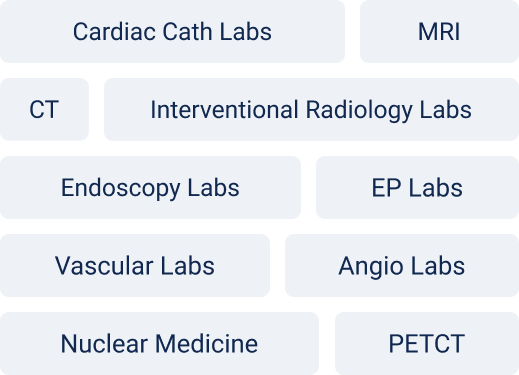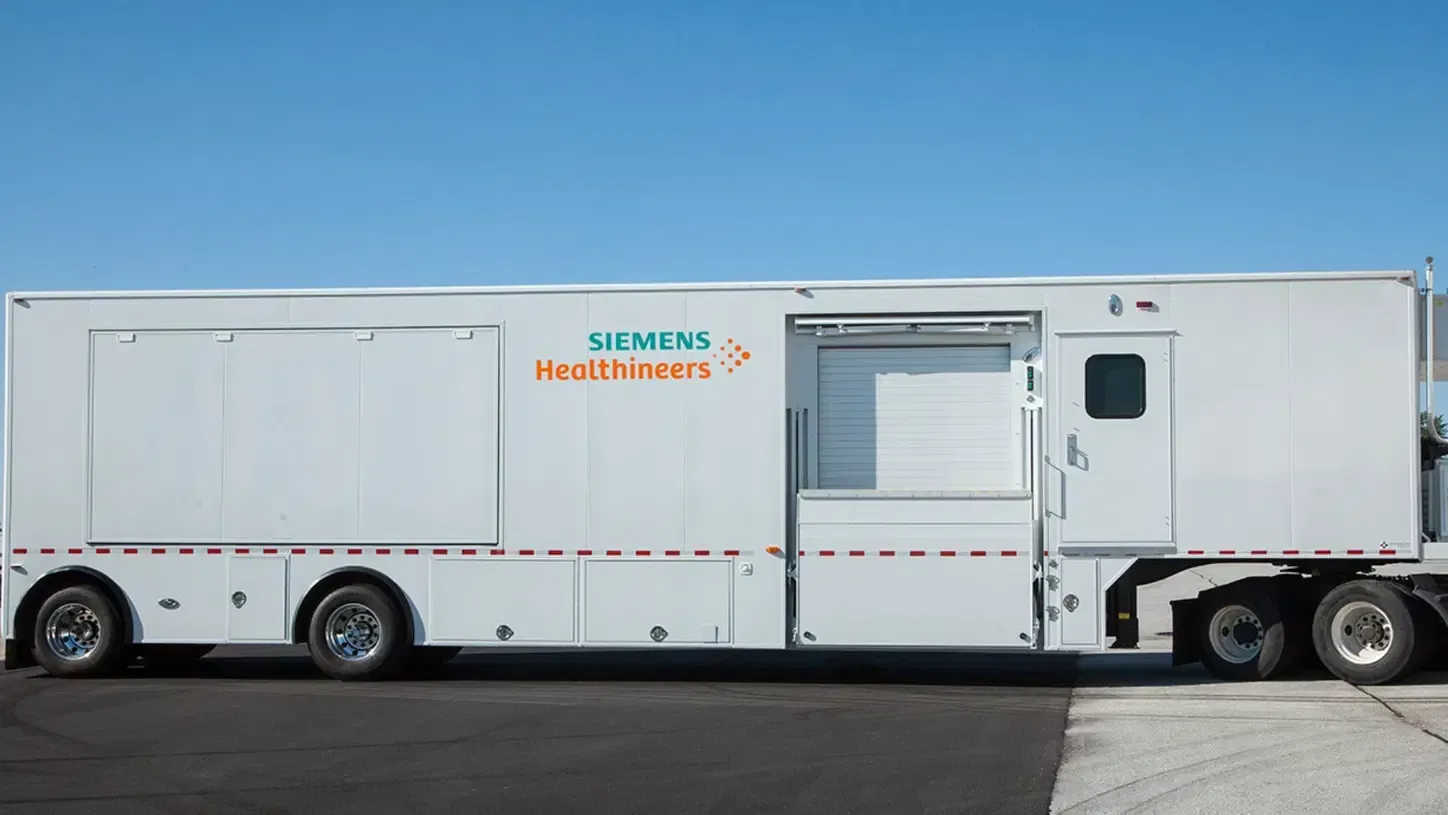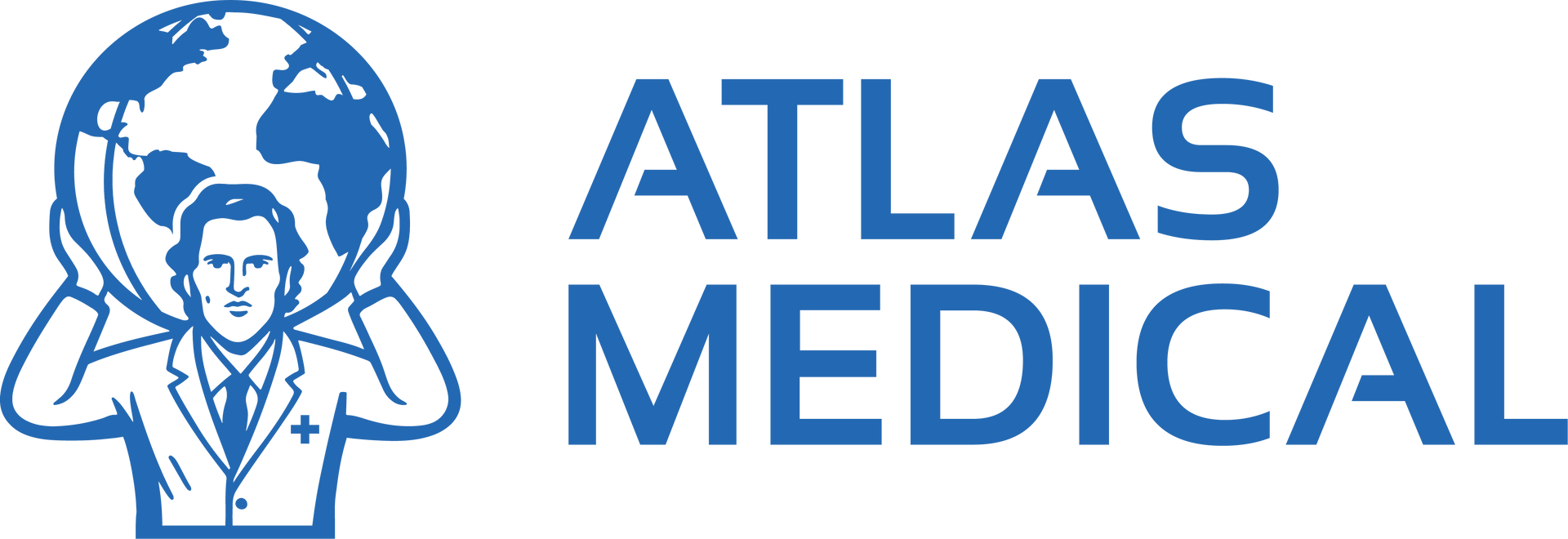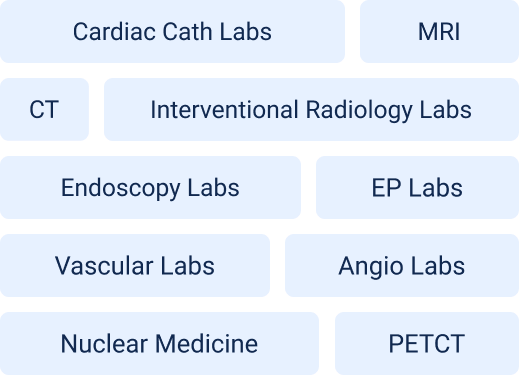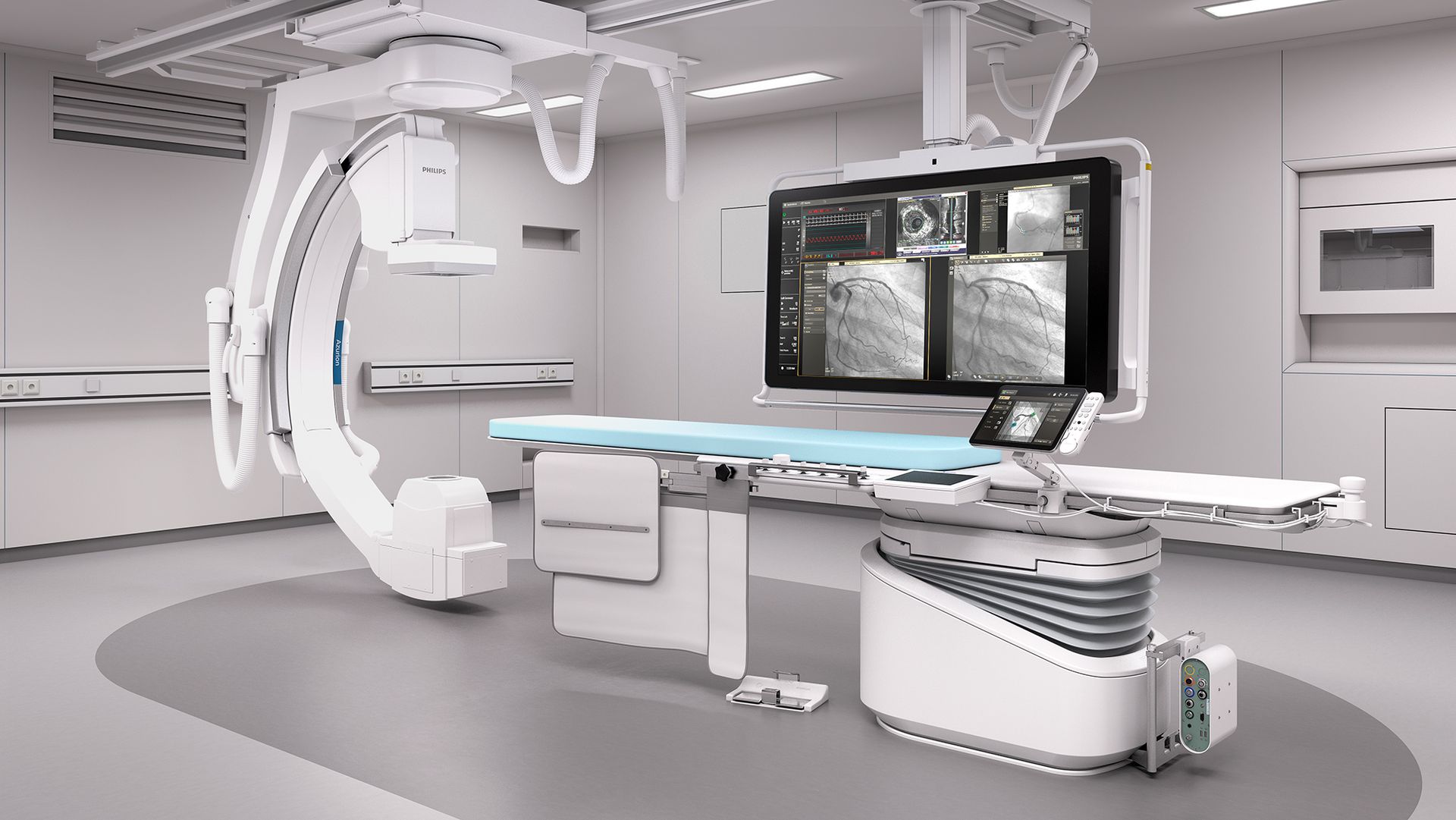A Comprehensive Guide to Siemens Mobile CT Rental Solutions
Learn about Atlas Medical's Experience with Siemens Mobile CT Rentals
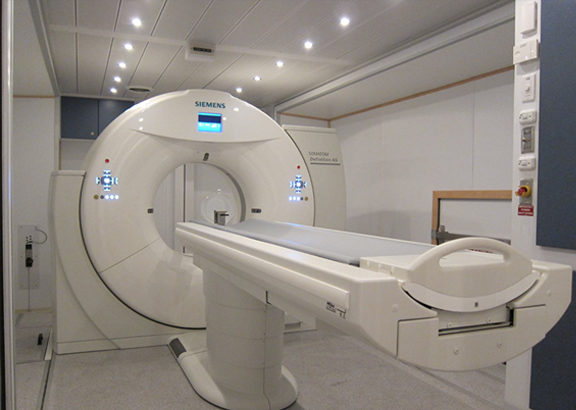
In the fast-evolving world of medical imaging, Siemens Mobile CT rental solutions stand out as a beacon of versatility and efficiency. Hospitals and healthcare facilities are increasingly turning to mobile computed tomography for their ability to adapt to varying patient needs and operational demands. This comprehensive guide delves into the myriad benefits of Siemens Mobile CT rentals, offering insights into how they enhance diagnostic capabilities while optimizing costs.
Discover how these state-of-the-art mobile units not only increase access to advanced imaging technology but also streamline workflows in challenging environments. Whether you’re a healthcare administrator considering rental options or a clinician seeking innovative solutions for patient care, join us as we unlock the excellence behind Siemens Mobile CT rentals and explore their transformative potential for your facility. Get ready to elevate your imaging strategies and ensure that quality healthcare is always within reach.
Advantages of Renting Siemens Mobile CT Equipment
Renting Siemens Mobile CT equipment offers several compelling advantages for healthcare facilities. One of the primary benefits is the flexibility that rentals provide. Unlike purchasing permanent CT scanners, renting allows hospitals to scale their imaging capabilities up or down based on patient demand. This is particularly useful in times of peak patient volume or during special projects, such as clinical trials or temporary health initiatives. By renting, facilities can ensure they have the necessary equipment without the long-term commitment and financial burden associated with purchasing new machines.
Another significant advantage is the access to the latest technology. Siemens is renowned for its cutting-edge medical imaging innovations, and their mobile CT units are no exception. When facilities opt for rental solutions, they often receive the newest models equipped with the latest features and software updates. This ensures that patients receive the highest standard of care with the most accurate and detailed imaging available. Moreover, staying current with technological advancements can enhance the diagnostic capabilities of the facility, leading to better patient outcomes.
Cost efficiency is another critical benefit of renting mobile CT equipment. The upfront costs of purchasing a CT scanner can be prohibitive for many healthcare providers, especially smaller clinics and rural hospitals. Renting allows these facilities to access high-quality imaging technology without a substantial initial investment. Additionally, rental agreements often include maintenance and support services, which can further reduce operational costs and minimize downtime. This financial flexibility can be a game-changer for many institutions, enabling them to allocate resources more effectively across their operations.
Key Features of Siemens Mobile CT Machines
Siemens Mobile CT machines are packed with features designed to enhance both the user experience and patient care. One of the standout features is their exceptional image quality. Utilizing advanced imaging technology, these mobile units provide high-resolution scans that are crucial for accurate diagnosis and treatment planning. The superior image quality helps clinicians detect even the smallest anomalies, leading to earlier interventions and better patient outcomes.
Another key feature is the portability and ease of deployment. Siemens Mobile CT units are designed to be compact and mobile, allowing them to be easily transported and set up in various locations within a healthcare facility or even at off-site locations. This mobility is particularly beneficial in emergency situations or in areas with limited access to stationary imaging equipment. The ability to bring advanced imaging directly to the patient can significantly reduce the time to diagnosis and treatment, which is critical in acute care scenarios.
Siemens Mobile CT machines also come equipped with user-friendly interfaces and automated workflows. These features simplify the operation of the equipment, making it easier for technologists and clinicians to perform scans efficiently. The intuitive design reduces the learning curve and minimizes the risk of user error, thereby enhancing the overall quality of care. Additionally, many Siemens CT units offer integrated data management solutions, enabling seamless integration with existing hospital information systems and electronic health records. This connectivity ensures that patient data is readily accessible and can be easily shared among medical professionals, facilitating coordinated care.
Applications of Mobile CT in Healthcare
Mobile CT units have a wide range of applications in the healthcare setting, making them a versatile tool for various medical specialties. One of the primary uses is in emergency and trauma care. In situations where immediate imaging is required, such as after a severe injury or stroke, mobile CT units can be rapidly deployed to provide critical diagnostic information. This capability can be life-saving, as it allows for swift decision-making and timely initiation of treatment.
Another important application of mobile CT is in oncology. Cancer patients often require frequent imaging to monitor the progression of their disease and assess the effectiveness of treatments. Mobile CT units can be utilized to provide on-site imaging for these patients, reducing the need for them to travel to different locations for their scans. This convenience can improve the overall patient experience and ensure that imaging is performed in a timely manner, which is essential for effective cancer management.
Mobile CT units are also valuable in rural and underserved areas. Many communities lack access to advanced imaging facilities, which can hinder the diagnosis and treatment of various medical conditions. By deploying mobile CT units to these areas, healthcare providers can bring high-quality imaging services directly to patients who might otherwise go without. This can lead to earlier detection of diseases and better health outcomes for these populations. Additionally, mobile CT units can be used in field hospitals and disaster relief efforts, providing critical imaging services in challenging environments where traditional imaging infrastructure is unavailable.
How to Choose the Right Mobile CT Rental Service
Selecting the right mobile CT rental service involves several considerations to ensure that the chosen solution meets the specific needs of the facility. One of the first factors to evaluate is the quality and condition of the equipment being offered. It is essential to choose a rental service that provides modern, well-maintained units equipped with the latest technology. This ensures that the imaging quality is up to par and that the equipment is reliable, minimizing the risk of downtime and technical issues.
Another important consideration is the level of support and maintenance included in the rental agreement. A reputable rental service should offer comprehensive support, including regular maintenance, technical assistance, and prompt repair services. This support is crucial for keeping the equipment in optimal working condition and addressing any issues that may arise. Additionally, it is beneficial to choose a provider that offers training for staff members on how to operate the mobile CT units effectively. Proper training can enhance the efficiency of the imaging process and improve the overall quality of patient care.
Cost is also a significant factor when choosing a mobile CT rental service. It is important to compare the pricing structures of different providers to ensure that the rental agreement aligns with the facility's budget. Some services may offer flexible rental terms, such as short-term or long-term options, which can provide additional financial flexibility. It is also worthwhile to explore any additional fees that may be associated with the rental, such as delivery, setup, and decommissioning costs. Understanding the total cost of the rental arrangement can help facilities make an informed decision and avoid unexpected expenses.
Cost Considerations for Mobile CT Rentals
When evaluating the cost of mobile CT rentals, several factors must be taken into account to ensure that the investment is financially sound. One of the primary considerations is the rental fee itself, which can vary based on the duration of the rental and the specific model of the CT unit. Short-term rentals may have higher daily rates but offer flexibility for temporary needs, while long-term rentals typically come with lower monthly rates and are more cost-effective for extended use. Facilities should assess their specific needs and budget constraints to determine the most suitable rental duration.
In addition to the base rental fee, it is important to consider any ancillary costs associated with the rental agreement. These can include delivery and setup fees, which cover the transportation and installation of the mobile CT unit. Some providers may also charge for decommissioning and removal of the equipment at the end of the rental period. It is essential to obtain a clear understanding of all potential charges upfront to avoid any surprises and ensure that the total cost aligns with the facility's financial planning.
Maintenance and support costs are another critical aspect to consider. While many rental agreements include maintenance and technical support as part of the package, some may require additional fees for certain services. Facilities should clarify what is covered under the rental agreement and whether there are any extra charges for routine maintenance, repairs, or support calls. By having a comprehensive understanding of these costs, healthcare providers can better manage their budgets and ensure that the rental arrangement is both cost-effective and sustainable.
Maintenance and Support for Mobile CT Equipment
Maintenance and support are crucial components of any mobile CT rental agreement, as they ensure the equipment remains in optimal working condition and that any issues are promptly addressed. Regular maintenance is essential for the longevity and performance of the CT units. This typically includes routine inspections, calibration, and servicing of the equipment to prevent any potential malfunctions. A reliable rental service should offer a comprehensive maintenance plan that covers all necessary procedures to keep the units functioning at their best.
Technical support is another vital aspect of maintaining mobile CT equipment. Healthcare facilities should choose a rental provider that offers round-the-clock technical assistance to address any issues that may arise. This support can include troubleshooting over the phone, remote diagnostics, and on-site repair services. Having access to prompt and effective technical support minimizes downtime and ensures that imaging services can continue without significant disruptions. Additionally, it is beneficial if the provider offers training for staff on how to operate and maintain the equipment, as this can further enhance the reliability and efficiency of the CT units.
In the event of equipment failure or breakdown, it is important to have a clear understanding of the rental provider's policies regarding repairs and replacements. A reputable service should offer timely repair services and, if necessary, provide a replacement unit to ensure continuity of care. Understanding these policies upfront can help healthcare facilities plan for any contingencies and ensure that patient care is not compromised. By partnering with a rental provider that prioritizes maintenance and support, facilities can have confidence in the reliability and performance of their mobile CT equipment.
Case Studies: Successful Implementations of Mobile CT Rentals
Several healthcare facilities have successfully implemented Siemens Mobile CT rentals, demonstrating the transformative impact of these solutions. One notable case is a large urban hospital that faced challenges in managing high patient volumes in its emergency department. By renting a Siemens Mobile CT unit, the hospital was able to significantly reduce wait times for imaging and expedite the diagnosis and treatment of critical patients. The mobility of the unit allowed it to be positioned close to the emergency department, enhancing workflow efficiency and improving patient outcomes.
Another successful implementation occurred in a rural community health center that lacked access to advanced imaging technology. The center partnered with a Siemens Mobile CT rental service to bring high-quality imaging services directly to their patients. This initiative not only improved the diagnostic capabilities of the center but also increased patient satisfaction by reducing the need for long-distance travel to larger medical facilities. The mobile CT unit played a crucial role in early detection and management of various medical conditions, ultimately leading to better health outcomes for the community.
In a different scenario, a specialized oncology clinic utilized Siemens Mobile CT rentals to enhance their cancer treatment programs. The clinic needed frequent imaging for their patients to monitor treatment progress and adjust therapies accordingly. Renting a mobile CT unit allowed the clinic to perform on-site imaging, ensuring timely and accurate assessments. This capability was particularly beneficial for patients undergoing chemotherapy and radiation therapy, as it minimized disruptions to their treatment schedules. The integration of mobile CT technology into the clinic's workflow resulted in more personalized and effective patient care.
Future Trends in Mobile CT Technology
The future of mobile CT technology looks promising, with several trends poised to enhance the capabilities and applications of these units. One of the most significant trends is the integration of artificial intelligence (AI) and machine learning. These technologies have the potential to revolutionize medical imaging by automating image analysis, enhancing diagnostic accuracy, and optimizing workflows. AI-powered mobile CT units can assist radiologists in detecting subtle abnormalities, reducing the likelihood of human error, and speeding up the diagnostic process.
Another emerging trend is the development of more compact and portable CT units. Advances in engineering and design are leading to the creation of smaller, lighter mobile CT machines that are easier to transport and deploy. This increased portability expands the potential use cases for mobile CT, making it feasible to bring advanced imaging to even more remote and challenging environments. These innovations can enhance the accessibility of high-quality imaging services, particularly in underserved areas and during disaster response efforts.
The integration of telemedicine with mobile CT technology is also gaining traction. Telemedicine platforms enable remote consultations and real-time collaboration between on-site clinicians and specialists located elsewhere. By combining mobile CT units with telemedicine capabilities, healthcare providers can facilitate immediate expert analysis and decision-making, regardless of geographical constraints. This synergy can improve patient care by ensuring that the most qualified professionals are involved in the diagnostic process, regardless of their physical location.
Conclusion and Next Steps for Interested Clients
As healthcare facilities continue to seek innovative solutions to meet the evolving needs of their patients, Siemens Mobile CT rentals emerge as a versatile and cost-effective option. The numerous advantages of renting, from financial flexibility to access to the latest technology, make it an attractive choice for various medical settings. By providing high-quality imaging on demand, mobile CT units enhance diagnostic capabilities and improve patient care across a range of applications, from emergency and trauma care to oncology and rural health initiatives.
For healthcare administrators and clinicians considering mobile CT rentals, the next steps involve evaluating the specific needs of their facility and researching reputable rental providers. It is important to assess the quality of the equipment, the level of maintenance and support offered, and the overall cost of the rental agreement. By carefully considering these factors, facilities can make informed decisions that align with their operational goals and budget constraints.
As the field of mobile CT technology continues to evolve, staying informed about emerging trends and advancements is crucial. Embracing innovations such as AI integration, enhanced portability, and telemedicine capabilities can further enhance the value of mobile CT rentals. By staying at the forefront of these developments, healthcare providers can ensure that they are delivering the highest standard of care to their patients. Whether you are looking to expand your imaging capabilities or improve access to advanced diagnostics, Siemens Mobile CT rentals offer a pathway to unlocking excellence in medical imaging.
Rent a Siemens Mobile CT Scanner from Atlas Medical
Send us a message below with some basic info on your project (preferred system, timeline, etc.) and we'll have a project manager contact you to discuss your project.
“No, we’re not changing the world. But we help the healthcare providers that are.” – Atlas Medical

Sean Schneider
Mobile Project Manager · Atlas Medical
About the Author
Say hello to Sean Schneider - our Mobile Project Manager at Atlas Medical. Sean has worked in the medical imaging industry for over 20 years, including 10 years with Atlas Medical.
Sean has a knack for making complicated projects simple to understand. Around here, Sean's the man who keeps things moving smoothly.
When Sean isn't helping launch our mobile imaging units at new sites he enjoys spending time with his family, golf, and hockey.
Request a Mobile Imaging Solution
Our Services Include:
